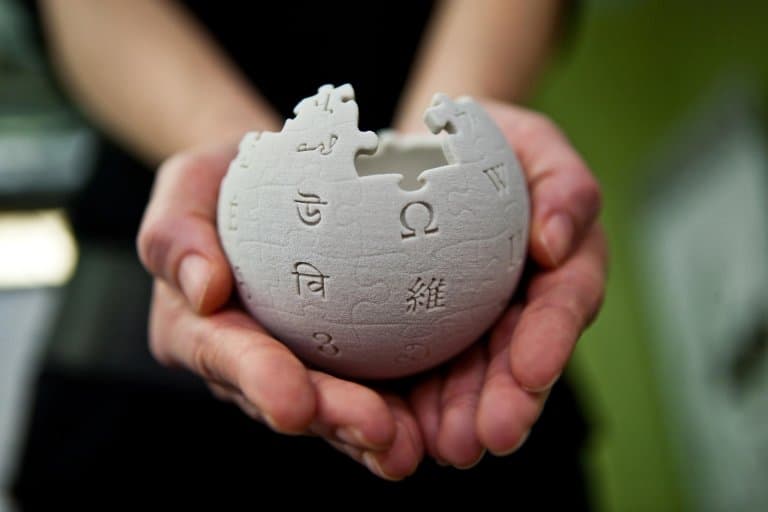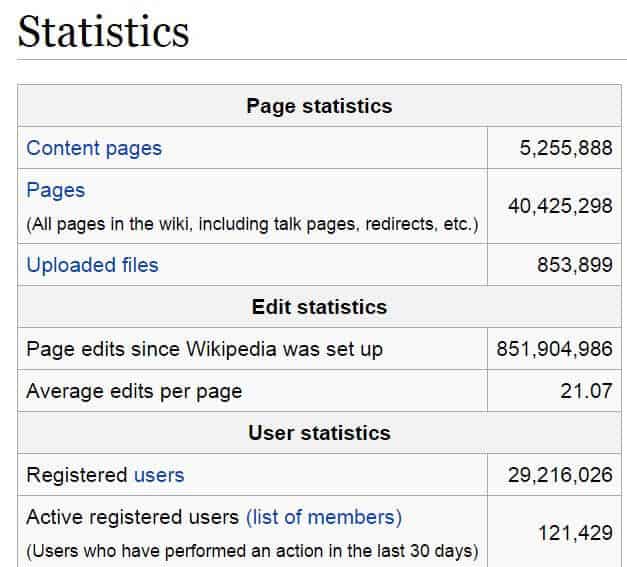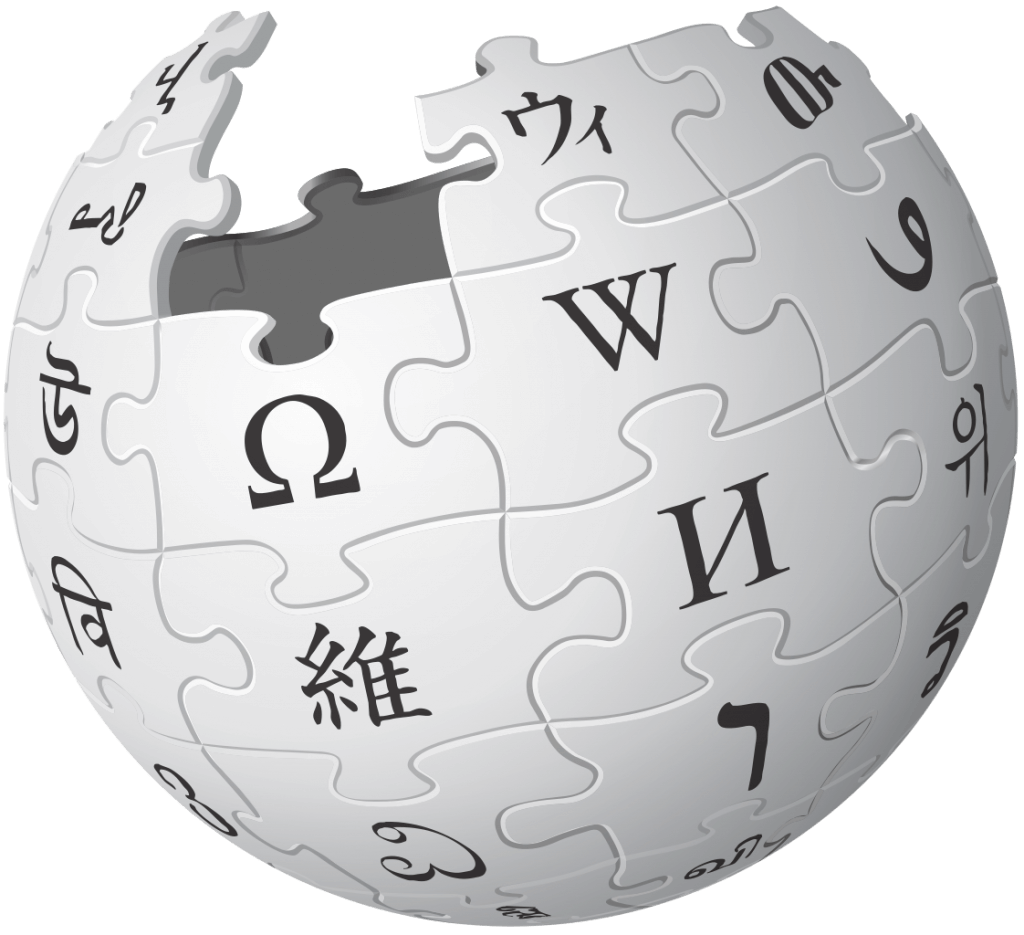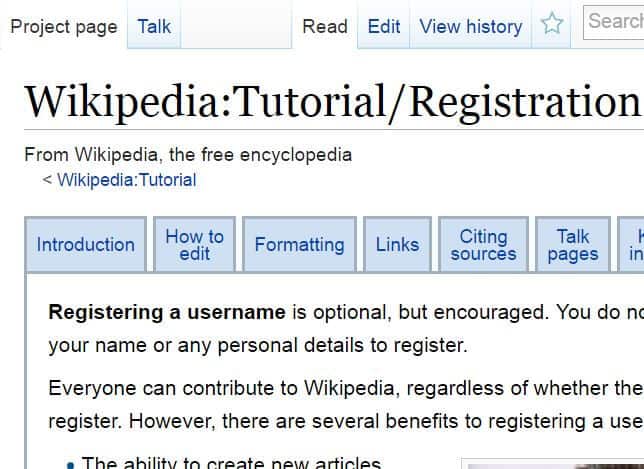Stop Writing Research Papers! Use Wikipedia Instead

I know that many moms struggle with teaching their children to understand the importance of writing. Writing can be a chore. Research papers can take hours on end to finish.
As homeschoolers, we don't want this. This is the essence of what we are trying to avoid. So how do you teach your children to be passionate writers? To believe you when you say writing is important? Real-life experience! I have used quite a few different techniques to get my kids to not only appreciate writing, but to want to write. They want to practice and to get better.
This technique is best for higher level students. It's always tough to say because all students, no matter the school or method, write at different levels. Middle students will probably not be at this level of writing. This doesn't mean that you can't assist them. Or let them help you do it.
From Wikipedia.org
Anyone with Internet access can write and make changes to Wikipedia articles, except in limited cases where editing is restricted to prevent disruption or vandalism.
This means that your kids can write for Wikipedia.
"WHAT?"
Trust me, your students won't harm Wikipedia. Their page explicitly states that:
Volunteers do not need to have any formal training.

How does Wikipedia work?
Most people are well aware that Wikipedia cannot be used as a 'source' on research papers. For colleges or high schools / public school systems. The vast majority of the time the articles are very, very accurate and well written. Sometimes not. Wikipedia has thousands of authors that constantly moderate pages. When changes are made, at least several eyeballs look at the change. Moderators are able to see the exact words that are changed, deleted, and added without having to search for it. So, don't worry too much about your child 'messing up' Wikipedia.
Anyone can edit a Wikipedia page

How to make Wikipedia a learning experience
Why does this work?
Wikipedia garners respect in a way that few other writing 'resources' can. Wikipedia is read by the masses. They have undoubtedly discovered Wikipedia in their own internet searches. Contributing to a project like this is not like writing a research paper. This is real life. This is public. This is a big deal. If they see little purpose in churning out a research paper
There is no surprise that many students see little purpose in churning out a research paper. My own children have complained that, "I like doing the research, but I hate writing the paper. Can I just not?" It isn't fun to say it, but I think the research paper is important. Maybe even necessary. We all need to learn how to effectively communicate information that we have learned. And if they are in a high level and looking at colleges, you want them to be prepared.
Wikipedia can't take the place of 'all' research papers, but it can eliminate almost as many as you want...
There are millions of articles. Lots of them are 'complete,' but many of them are incomplete. Some are just called 'stubs' and have almost no substance at all.
There are an unlimited number of topics that are 'incomplete.' For absolutely anything that you are studying, there is a Wikipedia page for it. If you are studying something very general, the page will probably be pretty complete. But you can always narrow it down so that you find a page that doesn't have much meat on it.
For mostly completed pages
These pages have two major benefits for your kids. The first benefit is that the page will have LOTS of information about the topic. Possibly more than you're taught, or discussed, or assigned. There are always outbound links to even more specific information and sources. In order to make any edits to the page, your student will have to read. At least a section. So right off the bat he or she is going to learn something. The next benefit comes from editing. This is a
The next benefit comes from editing. This is a great way to teach your students that grammar is important. No one wants to read something that is grammatically incorrect. You'll be able to teach them how to spot grammatical errors in the pages. There will also be sections that need clarification or don't make sense. Your child will then get to practice rewording sentences. Every paper that we write usually has at least one sentence that could be revised. This is a fun way to get better at writing without having to write a huge essay just to discover one convoluted sentence.
From previous knowledge or reading, there is the possibility that you will think the Wikipedia page is incomplete. If this is the case, there is the opportunity to contribute!
For partially completed pages
These pages offer every benefit of the completed pages with more emphasis on content contribution (not just editing). Every article that is 'partially' complete has room to add new sources. Sometimes an entirely new heading/section.
Mom, why do I have to cite my sources? Why does it have to be in this format? Its stupid!
Citing on Wikipedia follows a unique format. It may not be the one they will use on a big APA/MLA research paper in college. But, it will get them in the habit of citing. More importantly, it teaches the importance and the use of proper citations. Wikipedia isn't a research paper -- it's a research paper available to the world where people really do use the footnotes/sources.
If you really enjoy the topic, there is also room for additional research purely for the purpose of contributing to Wikipedia.
This leads to the last type of unfinished page.
Page stubs
Page stubs have almost nothing. If I remember correctly they are sometimes even removed if they don't meet a minimum content requirement. Page stubs offer all of the above -- editing, re-wording, contributing, and researching. Students will even learn how to format articles. Stubs don't have enough headings or sections. It is fun to add a section to a Wiki article.
Instead of assigning one or two research paper per 'semester' or year, you can 'assign' multiple Wiki stubs and articles.

Starting new pages
This is something that I would not recommend until you and your child are very familiar with Wikipedia. Once that time comes, and you discover that Wikipedia is missing a page for a topic, you can start your own page. There really isn't anything more fun than starting a page that will be available to the public on one of the most trafficked sites on the internet.
This really is just like writing a research paper. Wikipedia pages are structured with introductions and then detailed sections. Lots of times they have semi-conclusions at the end.
Wikipedia does not expect you to go into extreme detail or cover every sub-topic in a page -- that's what other contributors are for. Even better yet, you will be able to see the history of changes made to a page or section.
Additional reading for advanced writers.
Note: Many research papers have a 'thesis.' Theses are often opinionated. Nevertheless, research papers are not opinion pieces. Their theses should be objective. If you are arguing an obscure point of view, it is not a good idea to start a page. However, most research papers are not subjective to the point that a Wikipedia pages wouldn't be comparable.
How Wikipedia can teach the importance of writing prowess
Students get the research benefits without having to write an entire paper. They can submit little aspects to lots and lots of articles. They get exposure to other contributor's writing. They get to focus on a micro niche if they want. They aren't required to hit a page minimum.
'Free' feedback
Maybe the biggest benefit of Wikipedia contributing on a large scale is that you get quick feedback from other contributors. Your page will be edited. And your sentences might be re-ordered. And someone might have better, more recent data that they apply. This is free, quality feedback on your child's writing.
Wikipedia is forever
When my kids are finished writing a paper, they never want to see it again. They don't normally want to do 'revisions' on it because they've had enough. They've suffered through it. Wikipedia pages last forever. They are always online, available to edit. When they need a break, they can stop. But you'll get notifications when changes are made! So, a month later, you can come back to your page and see the changes!
Their accounts serve as records
When you create a Wikipedia account you will be able to keep track of everything that you do on Wikipedia. Programmers often use GitHub and Stackoverflow to boast about their programming knowledge. Graphic designers use Behance. Your Wikipedia page is a great way to show off your writing and research contributions. As a parent, you'll also be able to see how much work they are *actually* doing.
Specifically for unschoolers
Hey, unschoolers! This is for you! Your children need to learn writing, but you don't want to force them to write? It's much, much easier to show them the benefit of Wikipedia contributing. Just encourage Wikipedia as a source of information. And remind them to watch out for typeos... and that they are allowed to contribute.
I can't think of a better way to encourage extremely useful top-level writing in a niche.
Additional information
The best place to learn more about Wikipedia is by going to Wikipedia. Here are some of the best articles to get you started.
https://en.wikipedia.org/wiki/Wikipedia:Why_create_an_account%3F
https://en.wikipedia.org/wiki/Wikipedia:Tutorial/Registration

So, what are your thoughts?







Don't forget about WikiUniversity! https://en.wikiversity.org/wiki/Wikiversity:Main_Page
Great link! Thanks for contributing.
I'm so glad you linked up with us at Hip Homeschool Moms! I would never have thought about having my daughter write for Wikipedia. Maybe she will find this a little more appealing than the writing she's currently doing (which she's not enjoying much at all). 🙂
Hey Wendy! I am so, so happy that you enjoyed the article. And I'm very glad it was 'well received' so to speak. There is another 'technique' that I use and I'm working on the draft.
I'll admit, its very 'unorthodox.' But, if you are like me and believe that our children should practice writing, its an excellent alternative to 'conventional' writing. Lets be honest, we want them to learn how to write and learn how to love it. There isn't anything worse than forcing our kids to write when they HATE it.
What an interesting approach to writing! Glad you linked this up with the High School Lesson Book!
Great ideas! I'm featuring your post at the #LMMLinkup this week!
Somehow I missed seeing your comment! This means so much to me, thank you 🙂
I featured your post as my favorite #LMMlinkup, too. 🙂
Thank you! That really means so much to me!
I have noticed that when I edit articles to include additional information from a Christian perspective they get removed. Is this normal?
After we tried this out as well, we had a similar experience. We have stuck to only adding valuble information to Christian topics. We are going to be creating our first Wiki page on an important Christian issue very soon!
We started doing this with our 15-year-old daughter around mid-October. I must say, the results have been incredible! Our daughter has been having a blast! She has made edits to a LOT of pages. We have the log-in details, of course, and have monitored her progress. She has even made edits on her own at different times of the day when we didn't have an 'eye on her.'
I think something really cool is figuring out why certain comments of hers/ours get removed.